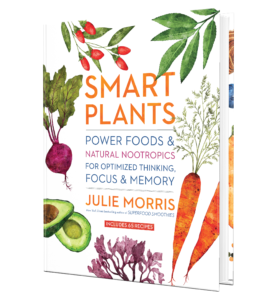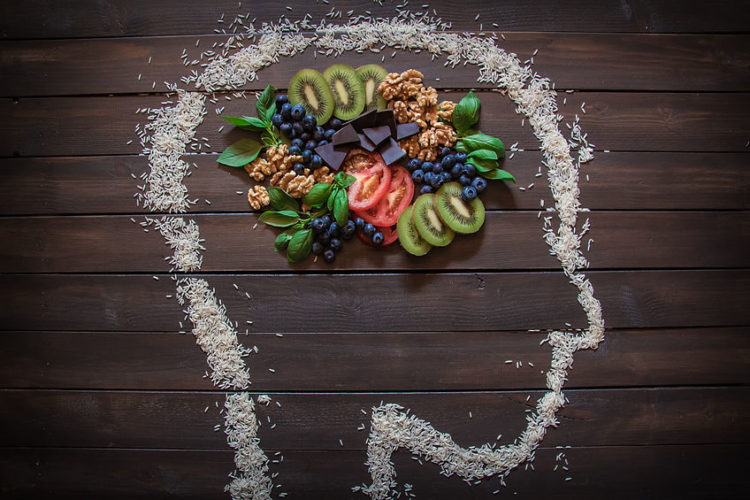By Julie Morris –
“Nootropic” is derived from the Greek words noos, meaning “mind,” and tropos, meaning “changed.” And whether or not the term is new to you, the fact remains that cultures around the world have been using “mind-changing” natural nootropics for thousands of years in the form of special types of roots, leaves, berries and seeds.
No, we’re not talking about drugs–natural nootropics are more like superfoods that can specifically boost your brain through their powerful micronutrients. Yet here’s what really makes natural nootropics so unique: Not only do they support everyday brain health (helping protect against disease and supporting ongoing mental functions), but they can also help optimize your cognitive performance. In other words, natural nootropics can tangibly improve the way you think.
As you might imagine, the benefits of natural nootropics can be used for a lot of things, including reducing stress, helping you absorb new information, enabling better thought flow while you’re writing or speaking, enhancing creativity and your ability to come up with fresh ideas, helping you memorize a speech and so much more. In some cases, they can even set the stage for the growth of new brain cells, literally building a better brain. Best of all, they’re just plants, which means these types of nootropics can either be taken as herbal supplements, or better still, used as ingredients in the delicious foods you eat.
True natural nootropics must be free of side effects and their mind-enhancing properties must be scientifically supported. Here are three varieties to try:
Purple Berries: All berries will be good for your brain, but berries with a dark-purplish hue –like blueberries, blackberries, and acai berries–contain the highest quantities of active compounds that encourage upgraded brain performance. Studies have shown these delicious natural nootropics increase neurogenesis (the process of making new neurons in the brain), while also encouraging improved learning, better memory and enhanced problem-solving abilities. Enjoy berries fresh, frozen, or as part of a superfood powder blend.
Lion’s Mane Mushrooms: With a long history of use in traditional Chinese medicine, highly neuroprotective lion’s mane mushrooms are known to help balance mood and enhance sleep quality. Additionally, a lion’s mane can boost learning, memory, and attention span and enhance your brain’s ability to be adaptable to changes or new inputs (neuroplasticity). Lion’s mane mushrooms are most widely available in powdered or capsule form. They are available at most health markets.
Cacao: Great news, your brain loves chocolate just as much as you do! Cacao, the raw form of chocolate, is packed with brain-boosting nutrients like magnesium and amino acids. But it’s cacao’s special phytochemicals that make it such a first-class nootropic. These plant-based chemicals can positively affect your emotions, boost focus, raise awareness and strengthen memory. To glean the maximum benefits from this mental performance booster, be sure to consume cacao (or cocoa, the roasted form of cacao) in low-sugar recipes. If you’re eating chocolate directly, consume varieties with the highest cacao content possible.
 About Julie Morris
About Julie Morris
Julie Morris is a wellness advocate who believes we can build a better quality of life through what we put on our plate. Her new book Smart Plants, includes an engaging guide to natural nootropic foods, as well as 65 vibrant recipes showcasing how to use them. Considered a pioneer in the realm of superfood and nootropic cooking, she explores the world’s most powerful plants through her work as a natural food chef and New York Times bestselling author. Ms. Morris has been quoted in The Wall Street Journal, GQ, and Women’s Health Magazine. She is also the founder and culinary director of the superfood education center, Luminberry.
To learn more visit Luminberry.com.










